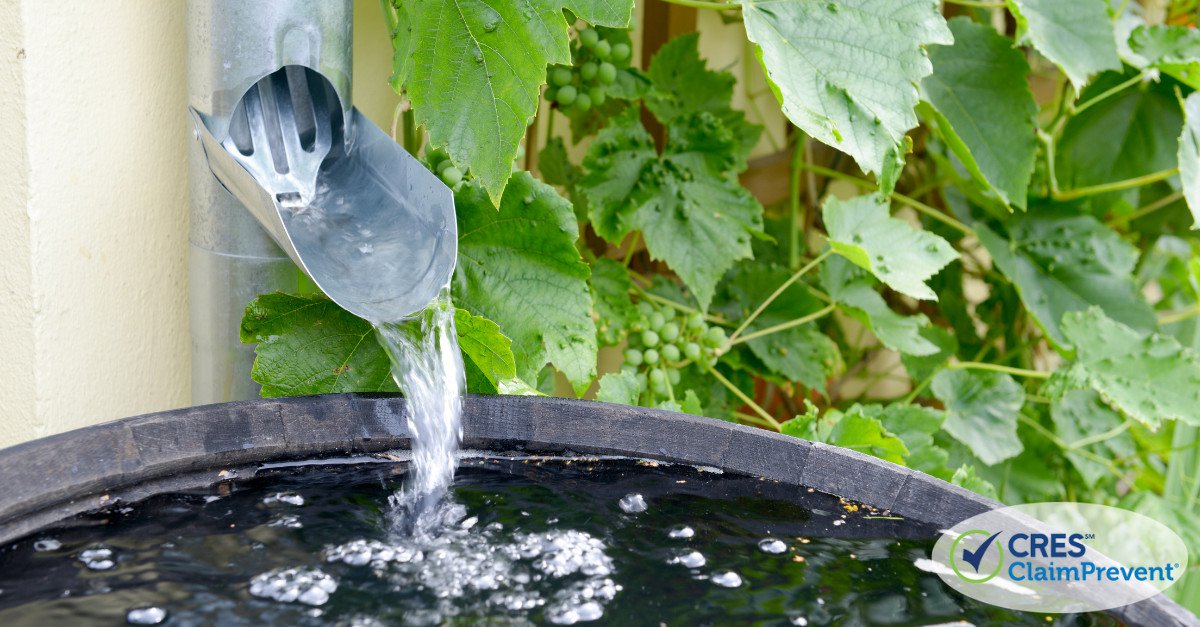Rainwater tanks and water barrels are an asset to a homeowner. They yield many benefits and are often installed as an environmentally-conscious choice that prevents the wasting of water. They reduce reliance on the main water supply, thereby reducing water bills and increasing self-sufficiency. They can even add value to a property. Water storage tanks can also be useful in areas where there is a risk of wildfires, because they provide another water source that can be used to help fight fires.
However, there are also risks that sellers and real estate licensees need to be aware of when selling a home with this type of infrastructure.
In this blog, we explore these risks, how they could potentially lead to a lawsuit, and what you as a real estate licensee can do to avoid a lawsuit.
Risk #1 – There may be damage not visible to the naked eye
Depending on the location and plumbing of a rainwater tank or water barrel, it may be difficult to see any damage just by looking at it. If there’s damage that isn’t visible to the seller or the real estate licensee, it could be detrimental to the property’s structure and condition. Even a slow leak into the home can have damaging effects on the home’s foundation and walls if it goes unchecked. The growth of mold or mildew can also be hazardous to the home’s occupants. If a home buyer finds that a rainwater tank or water barrel has leaked and caused damage to their new home, they may launch a claim against the seller, and the real estate licensee who sold the property.
Risk #2 – Water quality may be an issue
Sometimes the quality of water within a rainwater tank or water barrel can be compromised,
either through lack of maintenance, animal droppings, algae growth, chemical contamination or debris that can attract pests and insects. Imagine if a buyer purchases a home assuming the water quality is okay, and they realize afterwards that it’s not safe for their family to drink, cook with, or wash in.
Risk #3- Potential drowning hazards
Large rainwater tanks can be a drowning hazard if safety precautions are not in place to prevent access. This can be hazardous for small children and animals. Algae and debris can also create slippery conditions that can increase the chances of a drowning incident. Access points of tanks must be closed securely when not in use and tanks should receive regular maintenance. Sellers should be encouraged to check tank safety prior to selling their property. Real estate licensees should also be careful when showing a property that has tanks, to maintain the safety of prospective buyers.
Risk #4 – Non-compliance problems
Rainwater tanks and water barrels may require permits or approvals depending on where a property is located, the size and surface area of the structure, and what you plan to use the water for. Many states limit the number of tanks or barrels for each property and how a homeowner can use the water collected. If there’s water storage infrastructure on a property you’re selling and the appropriate permits or permissions were not granted, and the new homeowner is slapped with penalties because of it, they could make a claim for damages. In this scenario, they might suggest that the seller and real estate licensee knew there was a compliance issue and this was not disclosed to the buyer.
Risk #5 – New homeowners may not be aware of maintenance obligations for tanks
Rainwater tanks and water barrels need regular maintenance and cleaning, and water quality should be monitored for safety purposes. If the new homeowner can’t do this themselves, they may incur additional (and unexpected) costs. If they’re not aware of these obligations and find out post-purchase, they may be suitably unhappy with the seller and real estate licensee for not disclosing these obligations.
See also Real Estate Seller Disclosure issues.
Tips for Real Estate Licensees
Real estate licensees can minimize the risks of facing a lawsuit when selling properties with rainwater tanks and water barrels by following these useful tips:
- Recommend that buyers undertake an independent building inspection, because this would highlight any major leaks or structural problems which may have been caused by a rainwater tank or water barrel.
- Never state the water is drinkable without having proof to back it up. If the seller recently had the water tested and there is a report, you could provide that to the buyer. However, if you don’t have proof, it’s better not to say anything at all and recommend to the buyer to get the water tested if they wish to drink it. Disclose any known problems with the water storage infrastructure on the property.
- Stay within the scope of your expertise. If a buyer asks about state laws regarding water harvesting or what the water can be used for, refer them to the appropriate government authorities. Don’t provide advice or assistance on issues that are outside of the realm of real estate.
Real Estate E&O Insurance Can Help Protect You Against Lawsuits
Your real estate E&O insurance is an essential tool to protect your business. As part of one of the largest insurance brokers in the world, CRES has access to more E&O options than just about anyone. Let us find you the best E&O coverage for the best price. CRES E&O+ ClaimPrevent® insurance includes access to qualified real estate attorneys pre-claim for legal advice whenever you need it.
